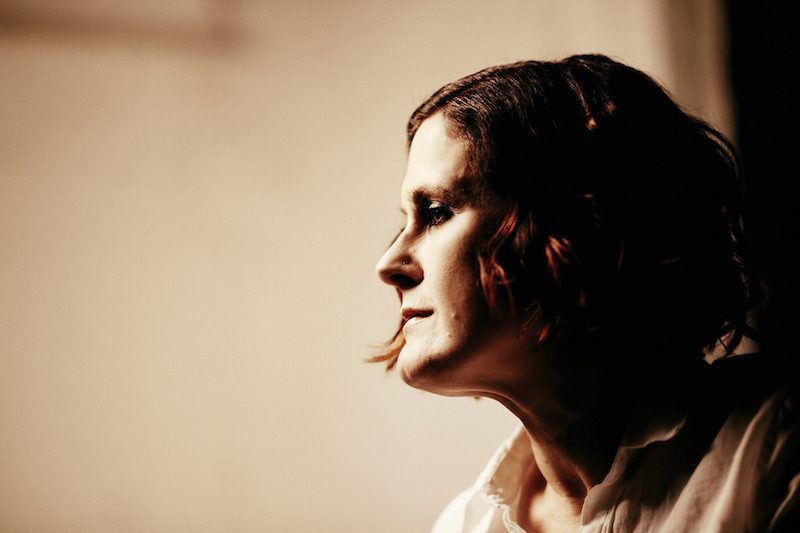Up close and personal with Alison Moyet.
Singer-songwriter Alison Moyet first found fame in the 1980s as half of the electronic duo Yaz, with hits like “Only You” and “Don’t Go.” She then launched a solo career: Chart-topping albums including Alf and Hoodoo ensued. After years of difficulties with music label Sony over artistic control, Moyet moved to Sanctuary Records, where she experienced a renaissance. Her album Hometime went gold in the UK. In June 2017, she released Other to rave reviews. She’s always been a fantastic LGBTQ ally, and ahead of her concert in Melbourne, Australia at the arena named after former tennis star Margaret Court, Moyet publicly denounced Court’s homophobia.
How do you identify?
There are more ways that I discover every day. Initially, it was that as a child I was raised to pull a cart. Someone born to French peasant sensibilities in an English new town, I found myself more aggressive and hardier than many of my peers. Later, I was considered a dyke, before I knew what a dyke was. I was physical and argumentative. I was assumed to be unapproachable and taciturn. I was unable to focus at school or to follow the path prescribed to us. I was not a young person many people wanted to live beside.
When did you begin to realize that not fitting in could be a benefit?
I never didn’t want to fit in, I just accepted it as a natural state. Later, when I could decipher the rules, I understood how to mimic them. When I then recognized that many people were more vulnerable than me, and without useful brawn, I found myself more adept at tenderness. I’m as free as I have ever been. I have never been free, and so now, no less so, no more. I know burdens, how to carry them, and how to build muscle on them. Age makes you grateful for the pitfalls. Glad of the separation.
How do you balance the desire to fit in with the imperative to stand out?
We have codes, and shapes, and colors that gift us an easier ride. That I couldn’t spell or punctuate reliably, in the ’60s, marked me as a child “of no discernible talent.” My mother, for whom grammar was the one aspect of her life she could control, viewed it very dimly that past participles and pronouns needed defining time and again, and she liked me where others did not. I didn’t opt for Otherness. Most of us don’t. We find it out about ourselves. Later we celebrate it. I deconstruct myself relentlessly. It is not unusual to me that I want to understand what shapes others. I found myself attached to a route that was enviable, eventually. As a youth, I wanted very much the norm. Obviously, now I recognize that the desire to lift yourself elsewhere is entirely normal. I never needed more. Belligerence took me there, coincidentally.
The album works as a cohesive whole and each tracks works independently. What links them?
I think you will find all my work, in terms of the songs, does that. Right back to Yazoo. Everything we did was only a distant relation to the next, bar maybe two or three songs. The voice and the electronics married them as a collection, but they came from disparate places, and we never tried to find a theme. For me, the same is true of Other. Guy [Sigsworth’s] sensibilities blend the tracks sonically, and my voice and lyrical approach make of them a connected body of work. Each piece is more of a short story than a chapter of a whole.
You’re now 56. Many older women speak about the social invisibility that aging brings. In an interview with the Guardian, you cited middle-age female invisibility as something that you find to be positive.
I was always remarkable. Even as a tot. I have been hugely self-conscious and have spent far too long in my own head. When I have glimpses of a success of my own grading, a well-written song or an insightful review, I am lifted to giggling heights. When I am without these things, I am a peasant with an open field. Being old enough to understand that I am never more important than I am irrelevant, and when dead am dead, as everything that dies. I like the endings of all things.
Your mother was English, your father French. You’ve spoken before about not trying to Americanize. How do you see British identity shifting in a post-Brexit, Trumpian world?
It started for me as a simple thing. My own accent. My history. The denominations I spend. A church and state not conflated. A woman not dressed for a red carpet. When you want to investigate what makes you choose, you need to direct your attention to the things that are yours to choose. Before you can question someone else’s identity, you have to be familiar with your own. I don’t want to mimic. I shut out voices. I don’t know where we are, where any of us is heading. I have no belief that our lives are sacrosanct. I see no emptying of the swamps, just the bottom feeders stirred up and on the surface.
All around the world, women continue to be silenced. Do you see yourself as having a social responsibility, as a songwriter who is also a woman?
Not as a songwriter do I feel the responsibility, or even as a woman with a platform, but as the woman and able matriarch I am, regardless. When I feel these slights as keenly as I do and I see my daughters still having to face the same privations, and indeed women of the world [experience] far more oppression than anything I have known, it is not even a consideration I need to weigh. Yes. I join my voice to the argument as vividly as I can.
